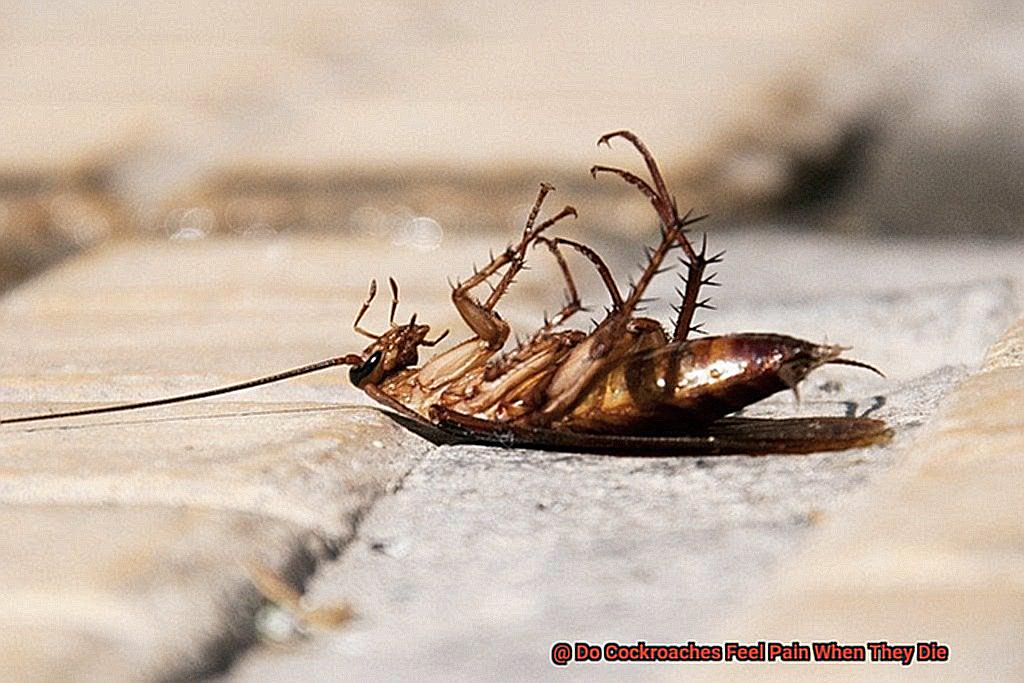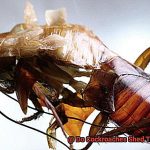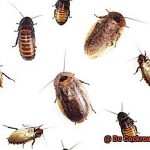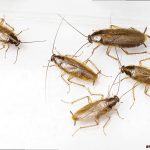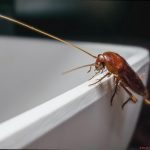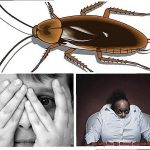Cockroaches are the bane of many people’s existence.
These resilient insects can survive in almost any environment, making them a formidable foe for homeowners and exterminators alike. But have you ever stopped to consider whether these creatures feel pain when they die?
It’s a question that has been debated by many, and one that is essential to understanding how we treat the animals and insects around us. While most of us view cockroaches as pests or creepy crawlies that need to be eliminated at all costs, it’s worth taking a moment to think about their well-being.
Is it ethical to kill them without considering their pain levels? Do they even feel pain when they die?
This blog post will delve into these questions, exploring the anatomy and behavior of cockroaches to determine whether they experience pain and suffering. But this isn’t just an academic exercise – there are real-world implications for how we deal with these pests.
If cockroaches do feel pain, then it’s important to consider how we can eliminate them in ways that minimize their discomfort and suffering. And if they don’t feel pain, then we can take a more utilitarian approach without worrying about causing unnecessary harm.
We’ll discuss the latest research on insect neurology, debate the ethics of killing pests, and ultimately come away with a better understanding of how we can coexist with these tiny creatures in a humane way.
What is a Cockroach?
Contents
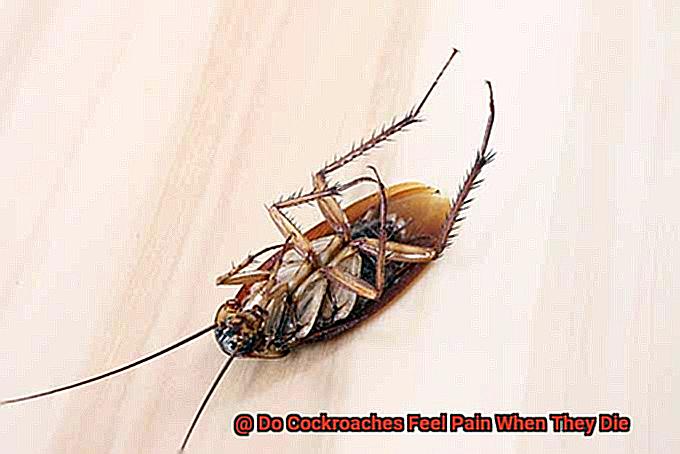
Cockroaches are some of the most fascinating insects on the planet, having successfully adapted to various environments for over 350 million years.
Belonging to the order Blattodea, there are over 4,000 species of cockroaches worldwide. However, the German cockroach, American cockroach, and Oriental cockroach are the most common species found in human dwellings.
These creatures have flat, oval-shaped bodies and six legs, with sizes ranging from about half an inch to two inches long. Their wings are present in most species but they hardly fly.
Cockroaches are nocturnal and food scavengers that eat both plant and animal matter, including food scraps, dead animals, and even book bindings glue. Some species can survive for weeks without food or water.
Despite their association with dirty environments and potential disease transmission, not all cockroach species are harmful to humans. In fact, some play crucial roles in ecosystems as decomposers and prey for other animals.
Many people wonder if cockroaches experience pain when they die. According to scientific research, cockroaches do not possess a nervous system similar to humans and therefore cannot feel pain the same way we do.
Any movements or reflexes exhibited by cockroaches when killed is simply an involuntary response to stimuli. As responsible homeowners and individuals, it’s important to approach pest control with compassion and respect for all living creatures.
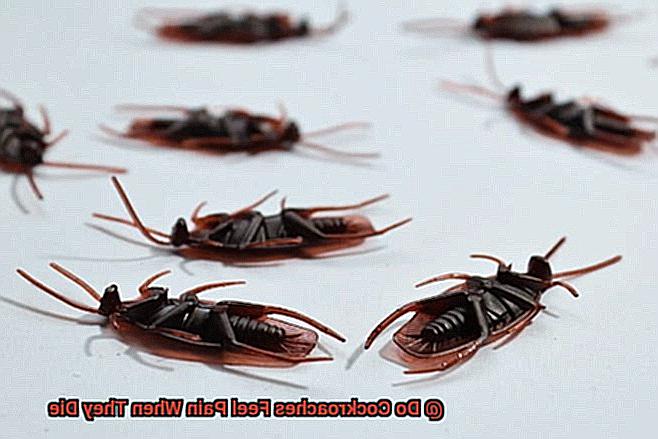
Finding alternative methods of pest control that do not involve harming these creatures unnecessarily is vital in protecting our ecosystem.
Do Cockroaches Feel Pain?
Cockroaches are truly remarkable creatures, with a long history on planet Earth.
They have evolved and adapted to diverse environments over millions of years. However, the question that has intrigued many is whether or not they feel pain.
The answer is not entirely clear. Although cockroaches do have a nervous system that can help them respond to stimuli, they do not possess the same pain receptors as humans and other animals.
This means that they cannot feel pain in the same way we do. Nevertheless, studies have revealed fascinating responses from cockroaches when their legs are injured.
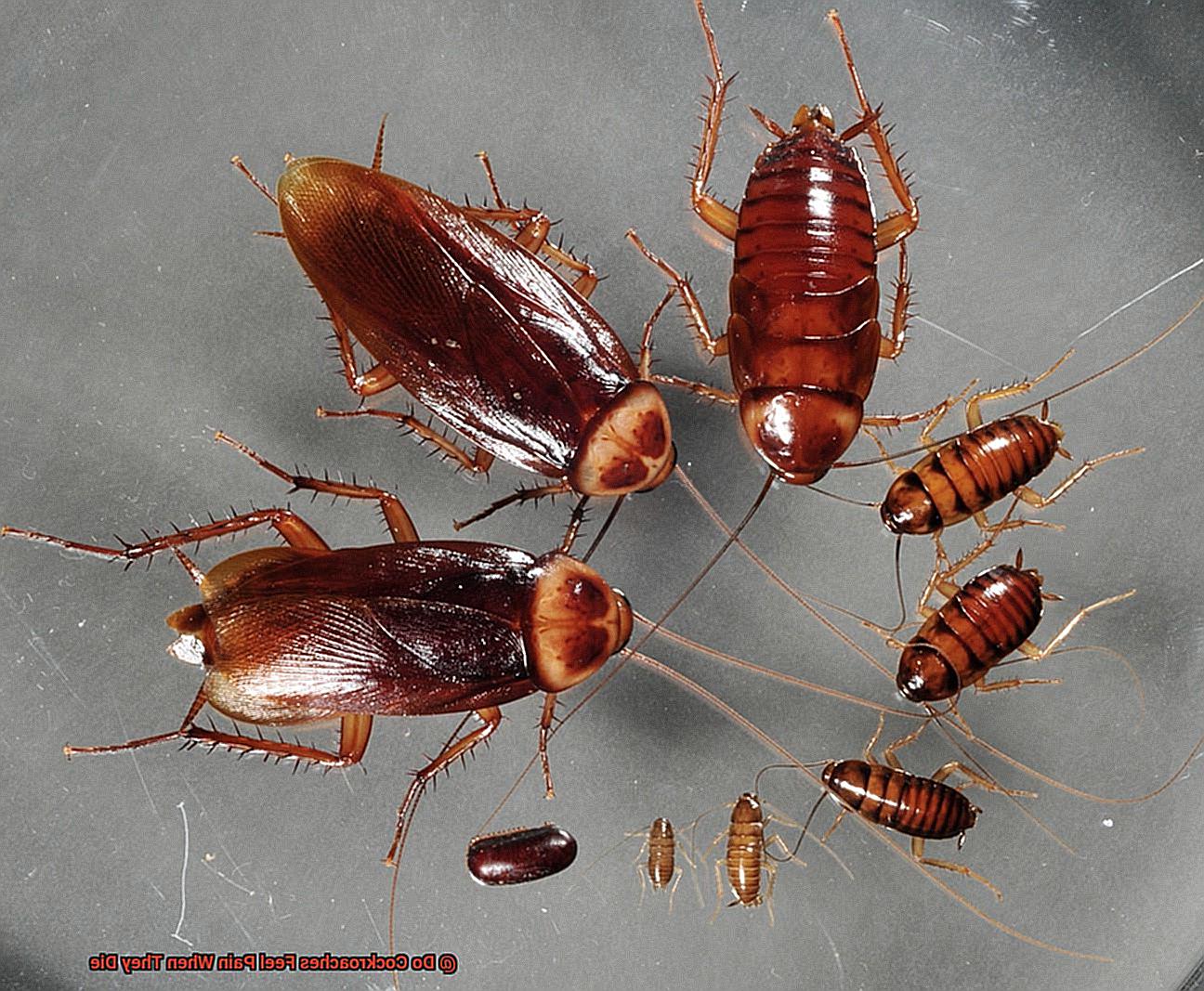
They respond by grooming the area and avoiding putting pressure on it, which could suggest some level of discomfort or sensation in the affected area. However, it is important to note that this response could also be a reflex rather than a conscious experience of pain.
Despite this uncertainty, research has shown that cockroaches can learn to avoid unpleasant stimuli, which could indicate that they are capable of experiencing negative sensations. Nevertheless, this still does not necessarily mean that they experience pain in the same way we do.
It is crucial to respect their well-being and avoid causing unnecessary harm whenever possible.
How do Scientists Determine if an Insect Feels Pain?
It’s a question that has puzzled researchers for years, as pain is a complex experience that involves physical and emotional components, and it’s tough to measure in non-human animals. However, scientists have developed several methods to study pain in insects that are quite fascinating.
One of the ways scientists determine if an insect feels pain is by observing their behavior. If an insect reacts to a painful stimulus by avoiding it or altering its behavior, this may be interpreted as a sign of pain.
For instance, if you expose a cockroach to a heat source that causes discomfort, it may move away or try to escape the area. Another method that scientists use to study pain in insects is by measuring their physiological responses.
When an animal experiences pain, it triggers certain physiological changes such as increased heart rate, breathing rate, and hormone levels. Scientists can determine whether insects are experiencing pain by monitoring these changes in their physiology.
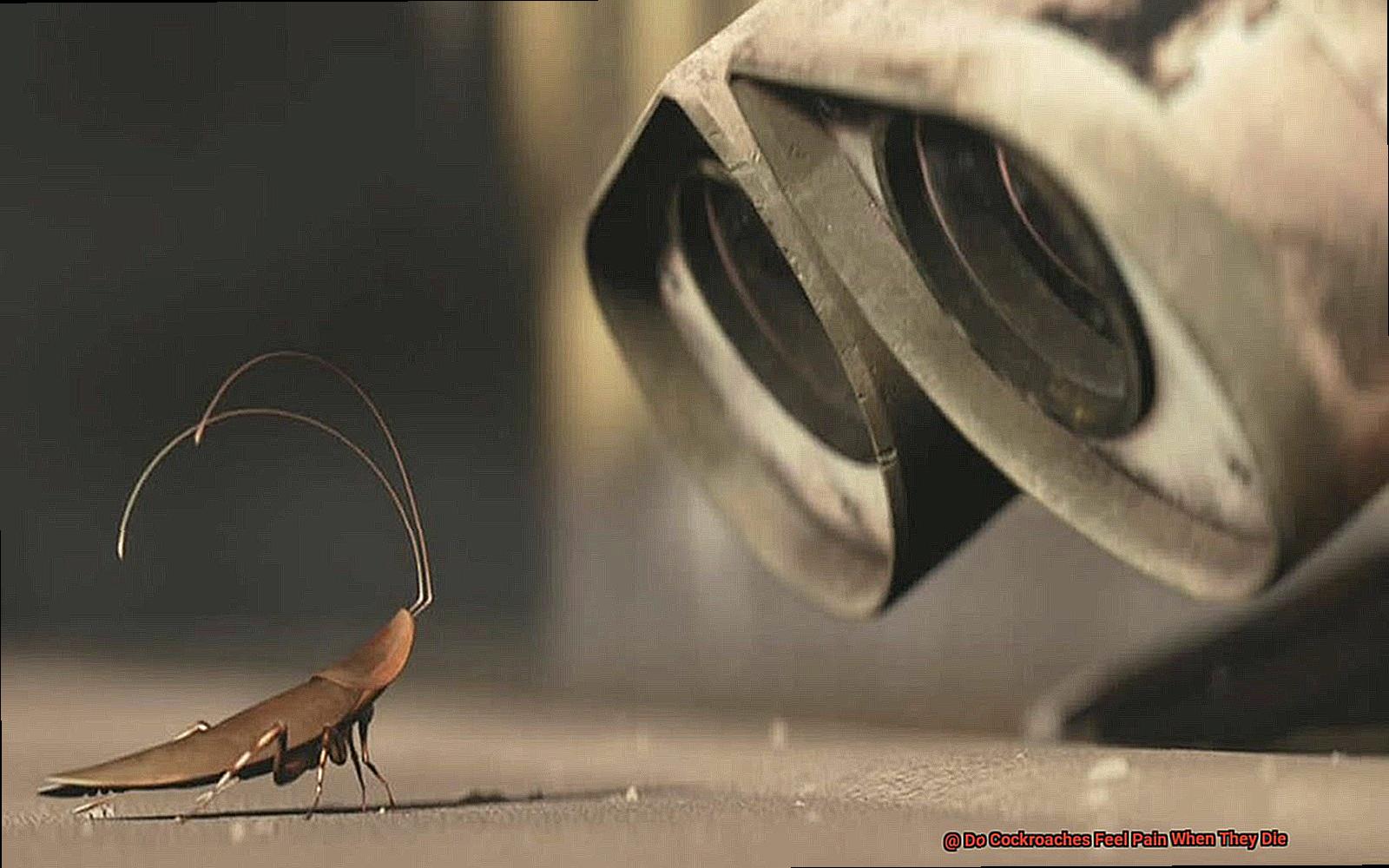
Despite these methods, there is still some debate about whether or not insects feel pain. Some scientists argue that insects lack the cognitive and emotional complexity necessary to experience pain.
In contrast, others believe that insects have evolved mechanisms to respond to harmful stimuli. In conclusion, while scientists have developed several methods for studying pain in insects, the question of whether or not they feel pain remains unresolved.
What Happens When a Cockroach is Killed?
Cockroaches generally go through a few stages of physical reaction when they are killed.
Firstly, you may notice the twitching or spasming of the cockroach as its nervous system shuts down. This is because, like all insects, cockroaches have a decentralized nervous system, which means that their nerve cells are spread throughout their body instead of being centralized in the brain.
After the initial twitching and spasming, the cockroach’s muscles will start to stiffen and contract due to rigor mortis. As the body’s muscles start to run out of energy and can no longer relax, this occurs.
Eventually, the cockroach’s body becomes lifeless and completely still. Although these physical reactions may appear to be signs of pain or suffering, they are simply automatic responses from the cockroach’s nervous system and muscle system.
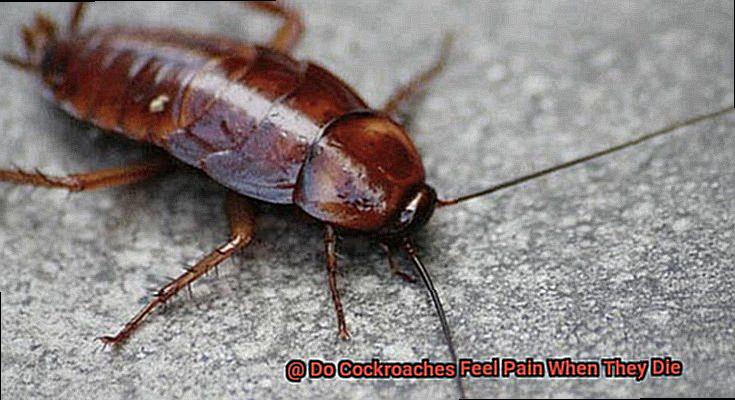
Unlike humans, cockroaches do not have the same level of consciousness, and it is unlikely that they experience pain in the way that we do. However, it is important to note that certain methods of killing cockroaches may cause them more distress than others.
For instance, using chemicals or pesticides may cause the cockroach to experience discomfort or even convulsions before it dies. In general, though, it is unlikely that a cockroach feels pain in the same way that we do when it is killed.
Alternatives to Killing Cockroaches
Before resorting to lethal measures, it’s essential to consider alternatives that are humane and effective.
Firstly, prevention is key. Keeping your home clean and tidy, sealing up cracks and crevices, and disposing of food waste promptly can help prevent cockroaches from entering your home in the first place.
It’s a simple but effective way to keep your home pest-free. Another option is to use traps.
Cockroach traps work by luring the pests in with an enticing scent and trapping them inside without the use of chemicals or pesticides. It’s an efficient way to capture and remove them from your home.
Essential oils have been shown to repel cockroaches, making them a natural and safe alternative to traditional pesticides. Peppermint oil is one such oil with a strong scent that can deter cockroaches from entering your home.
It’s a cost-effective and eco-friendly solution. Diatomaceous earth is another natural substance that can dehydrate and kill cockroaches without the use of harmful chemicals.
When sprinkled around areas where they are likely to hide, it can be an effective way to get rid of them. If all else fails, consider calling in professional pest control.
They can assess the severity of your infestation and recommend the most appropriate course of action, which may include non-lethal methods like baiting or trapping.
Gk-B4baggkA” >
The Role of Cockroaches in the Ecosystem
Cockroaches often get a bad rap and are associated with unclean environments.
However, did you know that these little insects play a vital role in our ecosystem? As decomposers, they break down dead plant and animal matter, recycling nutrients back into the soil.
Without them, we would be left with piles of waste that would accumulate and disrupt the delicate balance of nature. But wait, there’s more.
Cockroaches also serve as a food source for many animals such as birds, rodents, and other insects. They are a crucial link in the food chain, helping to sustain other creatures in the ecosystem.
Additionally, their burrowing activities help to aerate the soil, allowing air and water to circulate more freely. This process promotes optimal plant growth and helps to prevent soil erosion.
Despite their small size, cockroaches have also made significant contributions to scientific research due to their hardy nature and ease of breeding. Scientists have used them to study neurobiology, genetics, and even the immune system.
These little insects have the potential to lead to groundbreaking discoveries in medicine and other fields. So the next time you encounter a cockroach, don’t be so quick to reach for your shoe.
Also Read: Do Cockroaches Play Dead?
Conclusion
In conclusion, the debate about whether cockroaches feel pain when they die is multifaceted and ongoing.
While some studies suggest that these resilient insects may respond to painful stimuli, others argue that their cognitive and emotional capacities are not complex enough to experience pain. Regardless of their ability to feel pain, it’s important to approach pest control with empathy and consideration for all living creatures.
Finding alternative methods of pest control that minimize harm to these creatures is crucial in preserving our ecosystem. Prevention is the key, and maintaining a clean and organized home can help prevent cockroaches from infiltrating your space in the first place.
Traps, essential oils, and diatomaceous earth are natural and effective alternatives to traditional pesticides. Cockroaches play an integral role in our ecosystem as decomposers, food sources for other animals, and even subjects for scientific research.
So before you reach for your fly swatter next time you encounter a cockroach, remember that every living being has a purpose – no matter how small or seemingly insignificant.

